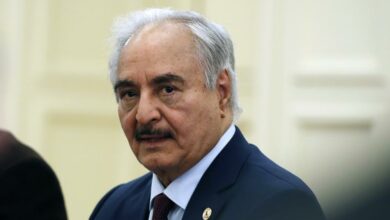A proposal has been put forward for an agreement between all political parties and blocs to allow certain agreed-upon candidates to run virtually unopposed in the parliamentary elections slated for November.
The proposal is the brainchild of Wahid Abdel Meguid, head of the parliamentary committee of the Democratic Alliance, a political bloc that includes the Muslim Brotherhood’s political arm, the Freedom and Justice Party.
The proposal aims for all political players to agree on a list of candidates to run unopposed in single winner districts. The logic behind the proposal is to ensure a number of consensus candidates are seated in the next parliament, as it will be responsible for appointing the constituent assembly that will write Egypt's new constitution.
Potential names for the list include political commentators Hassan Nafaa, Amr el-Shobaki and Amr Hamzawy, who also heads the yet-to-be registered Free Egyptians Party. Part of the proposal is also to push for Coptic and female candidates in the single winner seats, as well as representatives from marginalized communities in Egypt. The list could potentially also extend to party heads and prominent members.
However, this proposal has been set back somewhat by the haphazard compilation of party lists and splintering in the two main political coalitions, the Democratic Alliance and the Egyptian Bloc. Both blocs have witnessed mass pullouts by different parties in protest over the control of electoral lists, and whether remnants of the Mubarak regime have been recruited into the coalitions.
These political alliances were formed solely for coordination of electoral lists, with each party maintaining its own approach to the single seats. This new proposal now aims to build coordination among political powers in single winner elections as well.
Two-thirds of the seats contested for parliament will be list-based, while one third will be made up of single candidates.
Another obstacle to the proposal, according to Wafd Party higher council member Essam Shiha, is that people are not yet sure whether they will run or not due to the potentially tenuous existence of the parliament. If a new constitution is written and a president is eventually elected, the forthcoming parliament may be dissolved in order to elect a new, constitutionally legitimized one. Additionally, many worry about Egypt's security during the elections, and some potential candidates do not trust the military or the Interior Ministry to secure the polling sites.
Head of the executive committee of the Egyptian Bloc Mohamed Ghoneim said, “This is something we might be able to consider because it might leave room for coordination regarding certain personalities and public figures we can all agree on who should be in the next parliament … I do approve of this and I think it’s good for voters and not one party or alliance.”
Ghoneim denied that the proposal could be construed as political parties conspiring together to decide who could be allowed into parliament, adding that if put into practice, the proposal would be implemented in very select and few districts, maybe a dozen seats at most.
Mostafa Kamel al-Sayyed, a political science professor at Cairo University, called the proposal unrealistic. "It seems unrealistic given all the troubles between the political alliances and blocs, which have seen them all but break down. And so to think it is possible that they can somehow all agree on one list of public figures seems very difficult at the moment, especially as political parties have already started fielding their candidates in the single winner seats."




